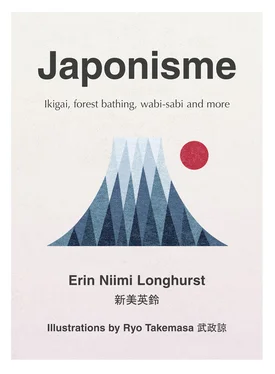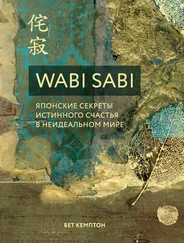I learned from my jiji ’s (grandfather’s) example, as he always took the time for self-care; this enabled him to be happy, productive in his working life and to live sustainably. He would spend weekdays in the bustling, vibrant heart of Tokyo with early starts and late nights. But for most of his working life, without fail, he and my grandmother would return at the weekends to Kamakura – a beautiful city by the sea – where he would recharge. He’d spend hours tending the small orange trees in his garden, going on rambling walks in the hills in their neighbourhood, painting, writing poems and painstakingly filleting and preparing fresh fish for dinner. Over the course of my career, during stressful times, I’ve found myself recharging and getting into the right headspace with similar approaches – creating art (through photography or writing), cooking (filling gyoza dumplings; repetitive, but effective) and organising in different ways (sorting out my wardrobe or putting my papers in order) to help me get into a more grounded and productive mindset.
Later in life, my grandfather grew more and more connected to his spiritual side, becoming actively involved in temple life as an elder. He sat on a council that represented the parishioners at Tsurugaoka Hachimangū, the cultural heart of Kamakura, and its most important Shinto shrine – the place that he loved, cherished and depended on so much when he needed clarity or peace, bringing him back to his tradition and his roots. His work there was important to him. Never one for patronising lectures or filling a silence for the sake of it, every event and ritual he took part in, he filled with appreciation, dedication and meaning.
He was an early riser, getting up to tend to all his plants before being picked up for work. And he’d be my accomplice in sneaking out at 3 a.m. in order to satisfy a jetlag-induced craving for red-bean ice cream at the local konbini (convenience store). But always, he would point out the sunrise or the silence of the streets on our walks back home, teaching me how to savour the tiny moments that I would otherwise have missed.
I was in my final year at university in Manchester when my jiji died, and it wasn’t until I embarked on my own working life that I realised quite how much of his ethos I had taken in and absorbed over the years. Through the tiniest, quietest moments, slightest of actions and the almost imperceptible nuances that he highlighted, I discovered and took in aspects of my own heritage and culture that would shape and guide my life.
Whenever I meet strangers for the first time and tell them about my Japanese heritage and upbringing, the conversation that ensues is always spirited, to say the least, although it does inevitably involve a discussion about their appreciation for anime, for example, or their love of Japanese cuisine and, very occasionally, karaoke !
A naturally anxious, cautious person, I’ve found that there are so many things I draw upon now to help me find clarity, regroup and persevere through challenges, and they are all firmly rooted in Japan and its rich heritage. So it is this that I want to share with you here: not just aspects of Japan and its culture in the abstract, but philosophies and strategies that have helped me get through some of the hardships, barriers and trials of modern everyday life. In so doing, the process of articulating and distilling the essence of these philosophies and traditions in these pages has renewed my love and appreciation for them, perhaps now more than ever before, making me aware of just how much I really do depend and rely on them in everyday life without even realising it. I hope that they will provide comfort, happiness and food for thought for you too – the kind that can only come from an appreciation of the quieter, yet rich, the ordinary, yet joyful moments along the wider journey.
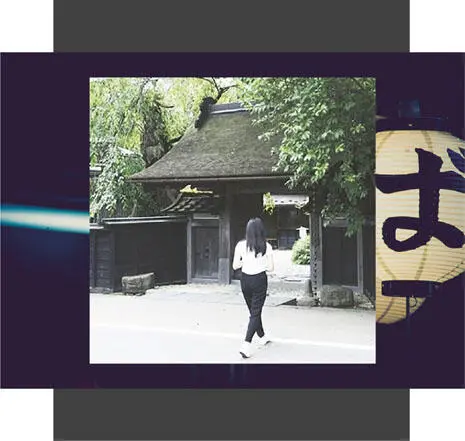
© Ben Sykes-Thompson, foreground
© Fancy Crave on Unsplash, background
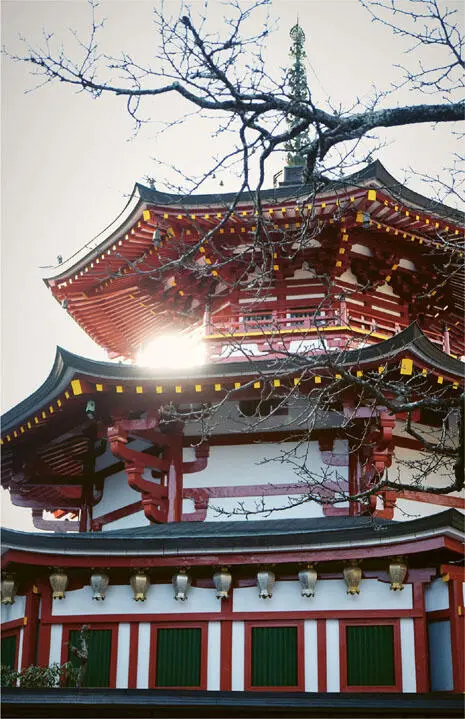
© Nassima Rothacker
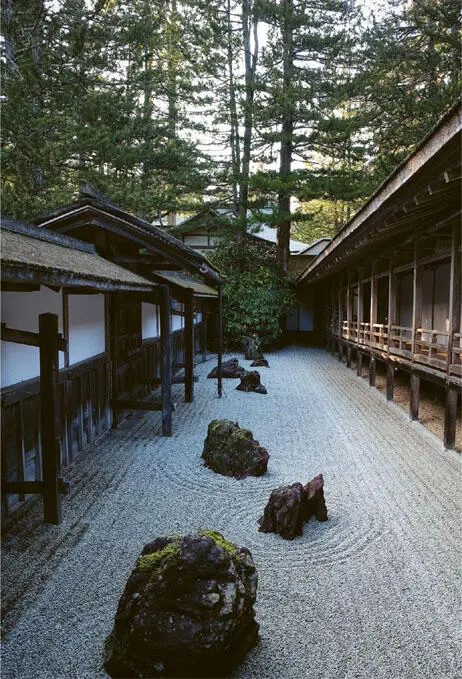
© Nassima Rothacker
Part One of the book, ‘ Kokoro ’, focuses on the heart and mind. It is about what drives us to do what we do ( ikigai ) and what brings us joy; the beauty of change ( wabi-sabi ) and of the passing of time; and finding beauty in imperfection and celebrating the hardships and moments that shape us ( kintsugi ). Part Two, ‘ Karada ’, is all about the body: how we engage with our surroundings (through forest bathing, flower arranging and in the home); how we nourish it (through food, tea and bathing); and how we stimulate our minds (through calligraphy). Finally, Part Three, ‘ Shukanka ’ (developing the habit), is about finding ways in which these can all be incorporated into our day-to-day lives and become second nature or routine.
There are so many aspects of Japanese cultural life that I believe can – and should be – adopted more elsewhere. Whether it’s changing a mindset, finding time to appreciate a good cup of tea or going out for a brisk walk in nature, these techniques, and others, can really be valuable for all of us who have felt overworked, anxious, haggard, frazzled or rushed. Too often, we get bogged down, stressed and wrung out. We’re under constant pressure to achieve perfection in all that we do, to be happy (never sad, or angry or upset) and to look incredible. We’re told that we should do it all and have it all – manage a successful career, while still spending quality time with family, eat well, yet have an amazing body and more. But this approach to life is just too precarious and doesn’t take into account the messiness of real everyday life, in which deadlines change, other people can have bad days and take it out on you, or you or your loved ones can become ill. It’s extremely high-pressure and stress-inducing. At best, it’s unattainable and unrealistic; at worst, it’s downright dangerous.
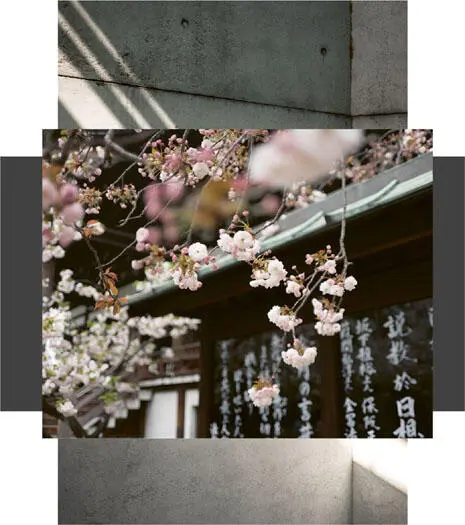
© Samuel Zeller on Unsplash, background; © Galen Clout on Unsplash, foreground
The philosophies I will share with you here and which are so integral to Japanese culture will help you to recognise and deal with the transience of life, to find the beauty within the messy chaos and teach you to adore and cherish your scars – all of which can be so wonderfully freeing. It’s about being able to acknowledge that things will end, and that things will blow up in your face, but without being nihilistic about it. And rather than chasing the unattainable goal of perfection, it’s about finding fulfilment and serenity in what already lies in front of you: being able to say, ‘I’m not perfect, and it’s ok.’
This book is packed with practical tips, suggestions, recipes and more to enhance your current existence – all inspired by the unique, beautiful and magical little islands that are Japan. Just think of the ingredients we used to have to ship over (at great expense), which can now be readily purchased at many local supermarkets; and the intricate bento boxes (painstakingly made for me by my mother), which are now fairly commonplace. These and so many other things are at our disposal now, and by using them, along with making tiny, incremental changes, you will learn how to establish new routines and habits to enrich and complement your lifestyle and wellbeing. This proverb pretty much sums up the thinking that underpins this book. It’s through small, iterative steps, rather than the big reveal, that we can make the most significant changes. So take things one step at a time. Many of the arts and practices you will read about, like ikebana (see here) and tea ceremony (see here) take decades to grasp and perfect. Several of my family members have sacrificed countless hours in following and, ultimately, mastering their chosen pursuits, but while I’ve dipped my toe into many of them, I am by no means an expert. Nor am I a historian or an academic. But through all of them, I have learned something about myself along the way – and that is what I want to share here. Because if I can do it, then so can you. The hobbies, activities and practices you will read about will all help to create change; change – and this is key – that is realistic, practical, affordable and, hopefully, fun, too.
Читать дальше
